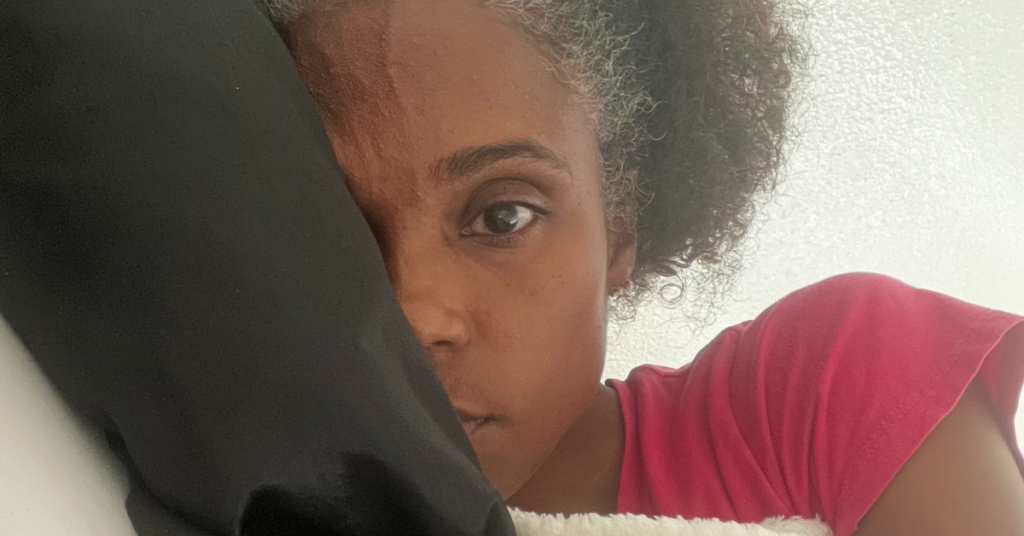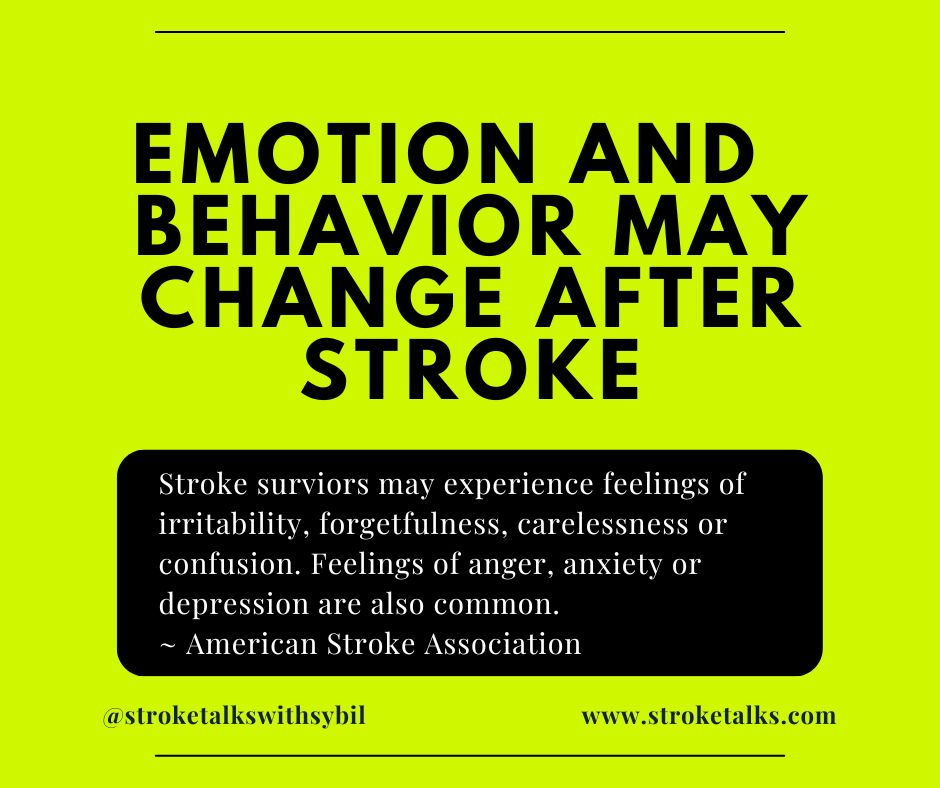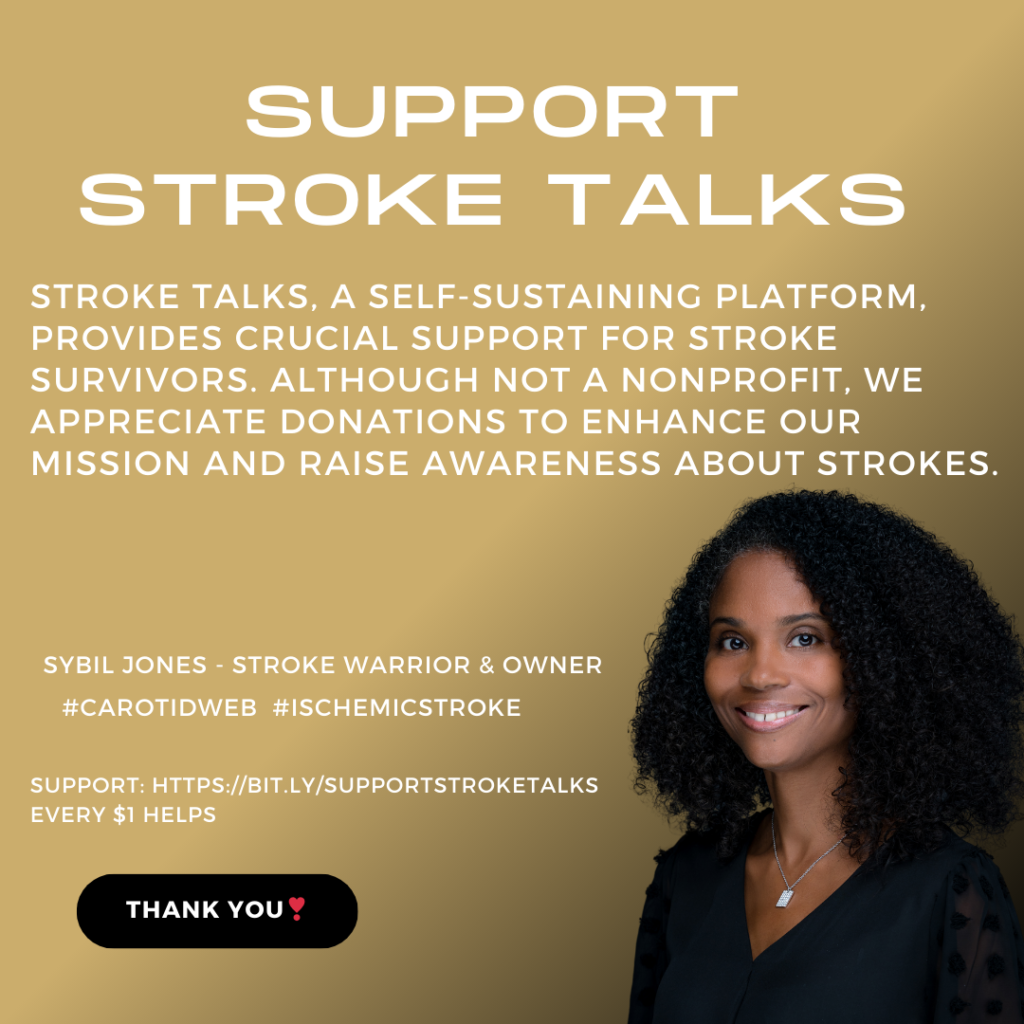One of the hardest things about recovering from a stroke is dealing with all the changes—not just physical, but emotional and mental. After my stroke, my family started noticing shifts in my behavior that I didn’t recognize at first. I became extremely jumpy at even the smallest sounds. Social settings, once enjoyable, became places of discomfort. Regulating my emotions felt like a battle I was constantly losing. Irritability, anger, and oh so many more reactions and emotions that were abnormal for me. Anxiety had crept into my life, but it wasn’t until much later that I realized just how much it was taking over.

Anxiety Took Control
Anxiety is more than being nervous about a test or giving a speech in public. It’s more than feeling jittery before a big event. It’s a weight that presses down on you, sometimes without warning. And for me, it began to control my life. I found myself avoiding people, avoiding places. I didn’t want to face the outside world, where everything felt unpredictable. My emotions were all over the place, and it wasn’t just affecting me—it was affecting my family, too.
The Impact on My Loved Ones
Looking back, I can see that my loved ones were walking on eggshells around me, unsure of what might trigger my next reaction. It got to the point where I had to admit it or should I say, forced to admit: I couldn’t handle this alone. As much as I had the “I can do it myself” mentality, anxiety had proven me wrong. I was making life difficult for the people I care about most. Anxiety doesn’t just affect the stroke warrior; it spills over onto the people who love them. And that’s a tough pill to swallow and requires a lot of love and patience from loved ones. Trust me when I say, “I didn’t realize the totality of my actions. And maybe your stroke warrior doesn’t either. Be loving, be patient, and have some grace.
It’s Not Just About Another Stroke
But hey, to all the loved ones out there reading this, be patient. This journey is just as confusing for us as it is for you. Anxiety post-stroke is not just about the fear of having another stroke, either. Interestingly, I rarely actively thought about having another one. Yet, deep down, I think my mind, in its own way, was trying to cope with the trauma. Maybe it was my unconscious mind sending out signals that something wasn’t quite right, even when I thought I was past it.
Getting Help Was the Best Decision
Seeking help was the hardest best decision I could have made. It’s a process, and I’m still working through it. However, recognizing that anxiety is a real, powerful force in life after a stroke has been a game-changer. And if you’re feeling similar things—whether you’re the stroke warrior or the one supporting them—know it’s okay to reach out for help. You don’t have to do it alone.

A Look Ahead: Anxiety and Depression
Anxiety and depression often take a walk down the aisle together, and in my case, they certainly made an appearance. I’ll be sharing more about depression and how it impacted my journey in an upcoming blog post. And hey, just because you see a big smile doesn’t mean all is well beneath the surface. Keep that in mind when you’re supporting someone on their stroke recovery journey.
Do I continue to wrestle with anxiety and depression?
Yes. I call them my two new best friends, who are bitches to deal with. But I know their ways and work to stay ten steps ahead to keep them from getting the best of me. More on this later soon.

Your generosity can make a profound impact on Stroke Talks, enabling us to expand our reach, provide valuable resources, and foster a stronger community for stroke survivors and their loved ones. Every dollar you contribute fuels our mission to enhance awareness, and empower those affected by strokes. Join us in making a meaningful difference – because every dollar counts towards building a brighter future for individuals on their journey to recovery and resilience. Support HERE
Please note that Stroke Talks is not a 501(c)(3) organization, and as such, donations made to our platform may not be tax-deductible. While we greatly appreciate your support, we recommend consulting with a tax professional for guidance on the ta
Subscribe to our newsletter!

